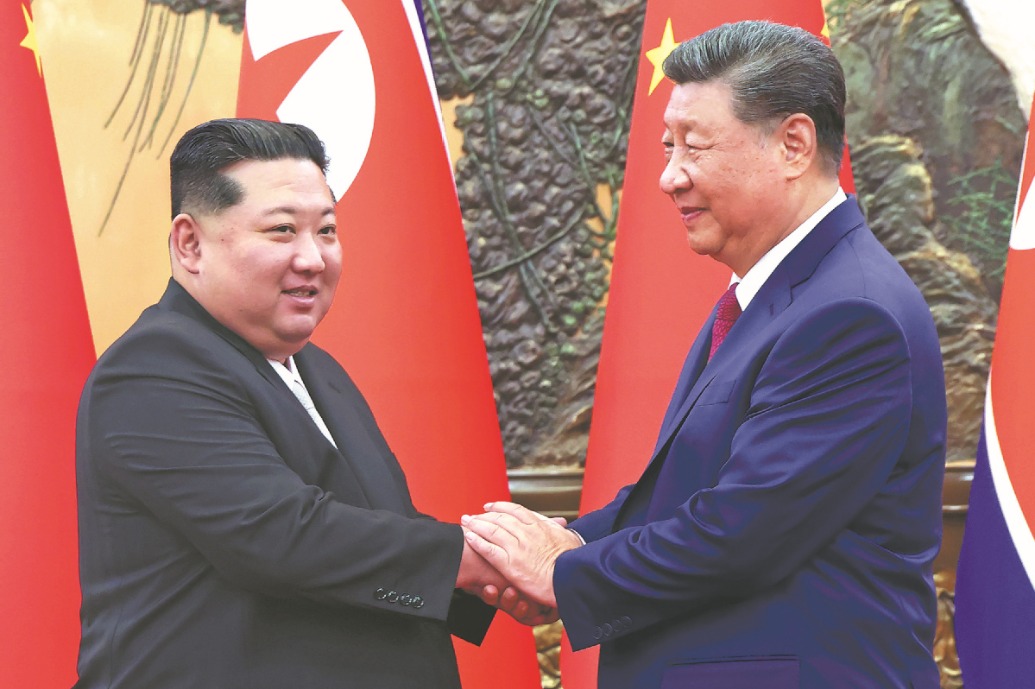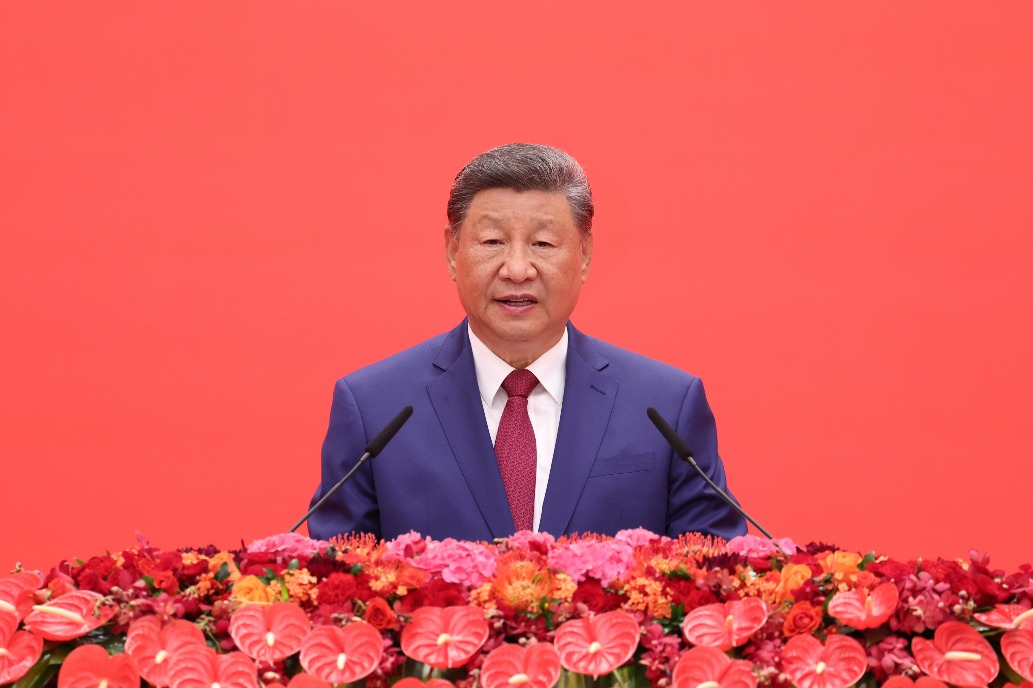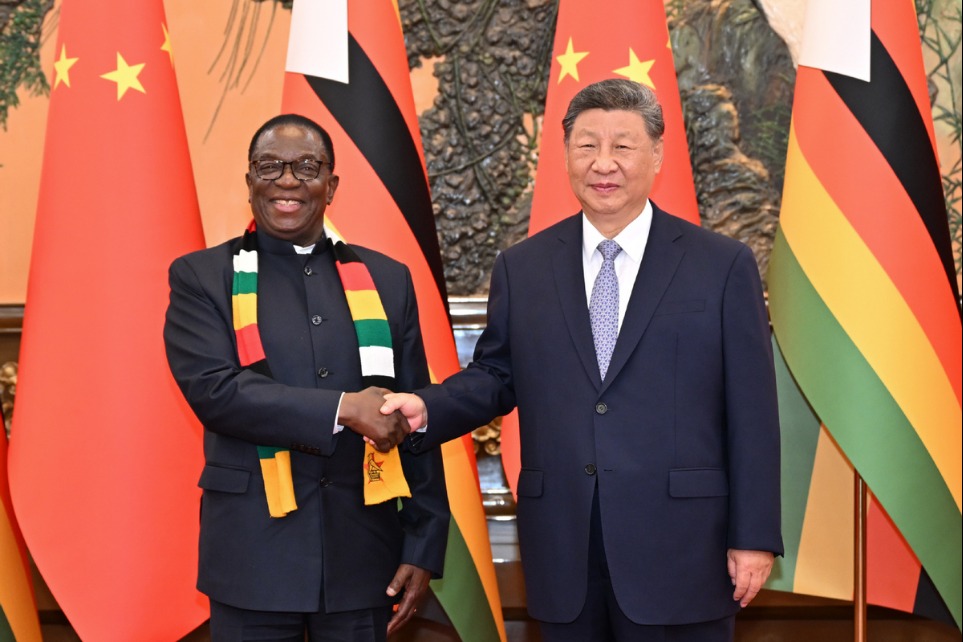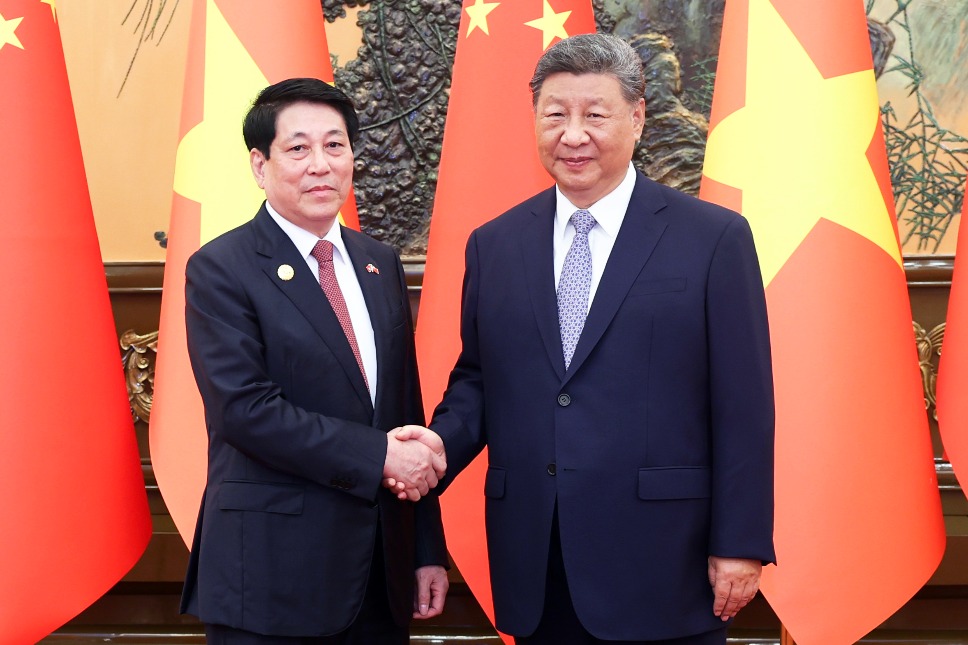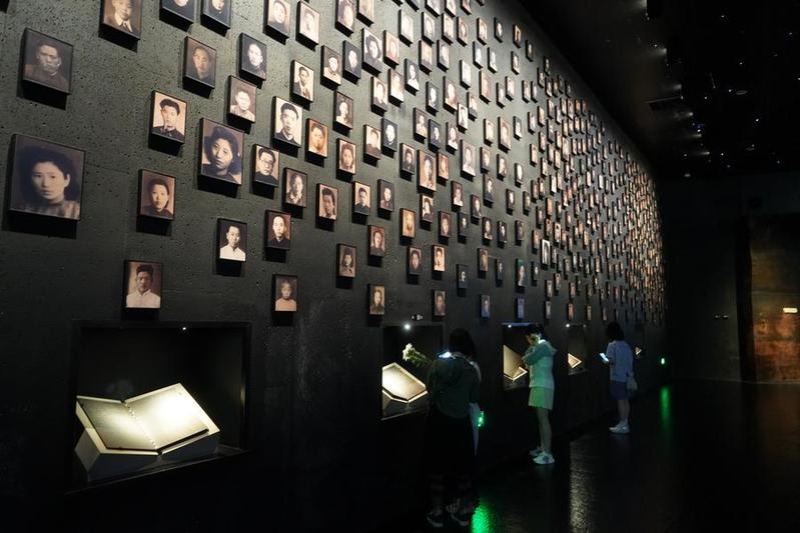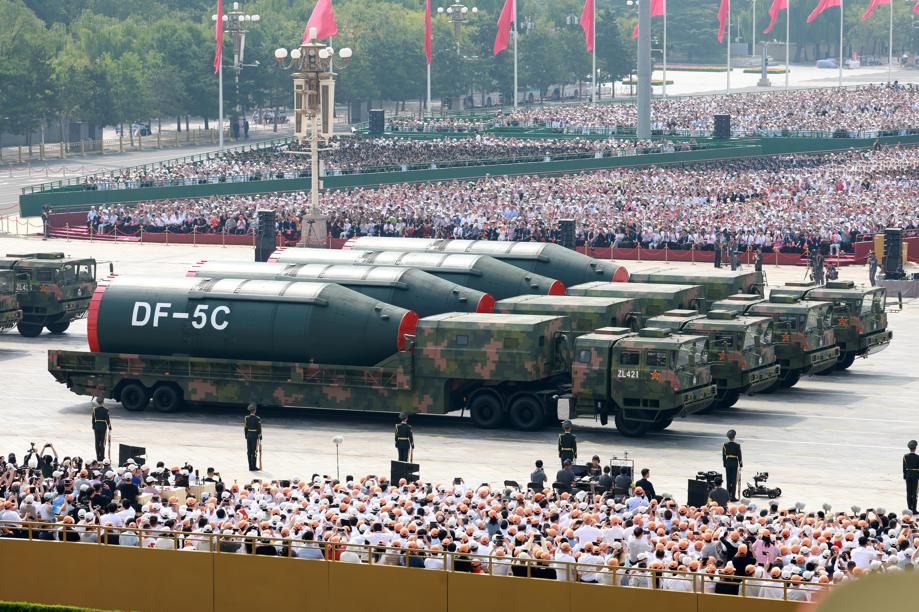Honor sacrifices of China, Russia in WWII

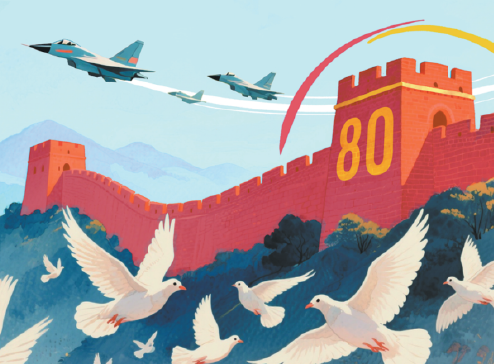
Four score years ago, our predecessors were caught up in an unprecedentedly arduous war in human history. And the scars the World Anti-Fascist War left behind can never be erased.
Fortunately, however, in the battle between good and evil, good ultimately triumphed. Commemorating the sacrifices our predecessors made to protect us against evil on the 80th anniversary of the victory in that war will endow us with greater strength, enabling us to move forward.
Given the Western-dominated historical narrative of World War II, many are aware of the significance of the Miracle of Dunkirk, the Normandy landings and the Battle of Midway.
But in the main theater in the East, China had already been engaged in a grueling and heroic Chinese People's War of Resistance Against Japanese Aggression (1931-45) for 10 years before the Pearl Harbor attack, following which the United States ultimately declared war on Japan.
China, the main battlefield against Japanese aggression, paid a heavy price for resisting fascist forces — with 35 million casualties — during World War II. In Europe, the Soviet Union was the main battlefield against German fascist forces and suffered the heaviest loss — about 27 million lives.
It was against Nazi Germany, and fascist Japan and Italy that the advocates of justice around the world came together. China, the US, the Soviet Union and the United Kingdom mainly formed the antifascist alliance, after more than four years of tenacious struggle, ultimately achieving victory. These four countries, along with France, became the cornerstone of the United Nations Security Council, and the guardians of world peace and order.
When a country loses its sense of right and wrong and historical perspective for short-term gains, cognitive dissonance arises, followed by a host of complex contradictions, problems and disputes. And when humankind abandons the correct historical perspective, the world falls into turmoil, and confrontations and wars have proliferated.
After the end of World War II, the international situation underwent drastic changes. The Cold War broke out, with the US and the Soviet Union vying for global hegemony.
This led to a change in the US' strategic need for Japan. In order to contain the Soviet Union's influence in Asia, the US chose not to cleanse Japanese society of militarism and instead began supporting Japan's policies.
As a result, many Japanese war criminals escaped punishment, with some of them even assuming important positions in the Japanese government. Also, due to Japan's constitutional monarchy form of government, the emperor's family members continued to be involved in Japanese politics, creating a complex web of connections between high-ranking officials and war criminals.
Consequently, some Japanese politicians today continue to cover up, avoid or refuse to reflect on their country's wartime past. Some even deny, try to whitewash, and glorify Japan's history of militarism, with certain Japanese politicians, rather a part of Japanese society, distorting history and confusing the people.
Worse, eighty years have passed, and the signs of this scar flaring up again are becoming increasingly evident, every year on the anniversary of Japan's surrender in World War II, Japanese prime ministers and Cabinet members visit or send offerings to Yasukuni Shrine, which honors, among others, 14 Class A war criminals, rubbing salt into the historical wounds of the people of Asia.
Given these facts, Japan is unlikely to reflect on its militaristic past. Instead, it could once again become a belligerent, warmongering power.
From the perspective of ideology and great-power rivalry, the West has deliberately downplayed and diminished the roles of China and Russia in the anti-fascist war. The Soviet Union, as the main European battlefield, paid the price with 27 million lives.
Yet in the Western narrative, it was the United States and the United Kingdom that defeated fascist Germany in World War II. China endured 14 years of bloody struggle, suffering 35 million casualties, but according to the Western historical narrative, China's contributions in World War II are deliberately downplayed. The hard-won victory in World War II at the cost of the blood and lives of tens of millions of Chinese and Russian people, have been deliberately overlooked by many Western historians and observers.
China and Russia both are major countries in the fast-changing world. But their relationship today is not an alliance; it is a strategic cooperative partnership in the new era based on the common cognition of global peace — and their need to safeguard national security.
If signs of a resurgence of Japanese militarism become evident, China and Russia, together with other peace-loving countries, will firmly oppose it. The two countries, along with others, stood together during World War II to defend justice, and remain committed to preventing any return of militarism that threatens peace and stability in Asia.
China and Russia have the responsibility to address the root causes that threaten Asian security and lay the foundation for lasting peace in East Asia and the world.
In this context, China's Victory Day military parade on Sept 3 should be seen as a display of the country's peace-loving forces, aimed at pursuing peace through deterrence. This is the best way to stop those who are eager to trigger conflicts.
The author is a researcher on Russian studies at the Chinese Academy of Social Sciences.
The views don't necessarily represent those of China Daily.
If you have a specific expertise, or would like to share your thought about our stories, then send us your writings at opinion@chinadaily.com.cn, and comment@chinadaily.com.cn.
















